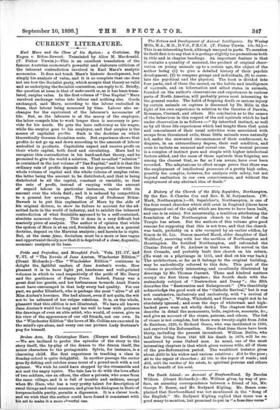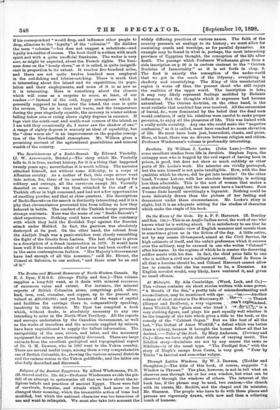The Tenth Island : an Account of Newfoundland. By Beccles
Willson. (Grant Richards.)—Mr. Willson gives, by way of pre- face, an amusing correspondence between a friend of his, Mr. George F. Beam, and Mr. Rudyard Kipling. Mr. Beam com- plained that Newfoundland was not mentioned in the "Song of the English." Mr. Rudyard Kipling replied that there was a good many to mention, but promised to-put-in a fear-line verse"
if his correspondent "would drop, and influence other people to drop, allusions to the ' loyalty ' of the colonies." He dislikes the term "colonies "—but does not suggest a substitute—and loyalty is a matter of course. The book itself is written with much spirit and with a quite unofficial frankness. The writer is very sore, as might be expected, about the French rights. The busi- ness done on the "treaty shore," as it is called, is quite insignifi- cant in proportion to its extent. It reaches five hundred miles, and there are not quite twelve hundred men employed in the cod-fishing and lobster-catching. There is much that is interesting about the island and its capabilities, its popu- lation and their employments, and some of it is as new as it is interesting. Here is something about the climate which will come as a surprise to some, at least, of our readers :—" Instead of the cold, foggy atmosphere which is generally supposed to hang over the island, the case is quite the reverse. The air is clear and warm, and the temperature during the year singularly equable, the mercury in winter seldom falling below zero or rising above eighty degrees in summer. If fogs visit the south-east and south-west corners of the island, as I am told they occasionally do, I never saw the shadow of one." A range of eighty degrees is scarcely an ideal of equability, but the "clear warm air" is an improvement on the popular concep- tion of the Newfoundland atmosphere. Mr. Willson gives a promising account of the agricultural possibilities and mineral wealth of the country.



































 Previous page
Previous page